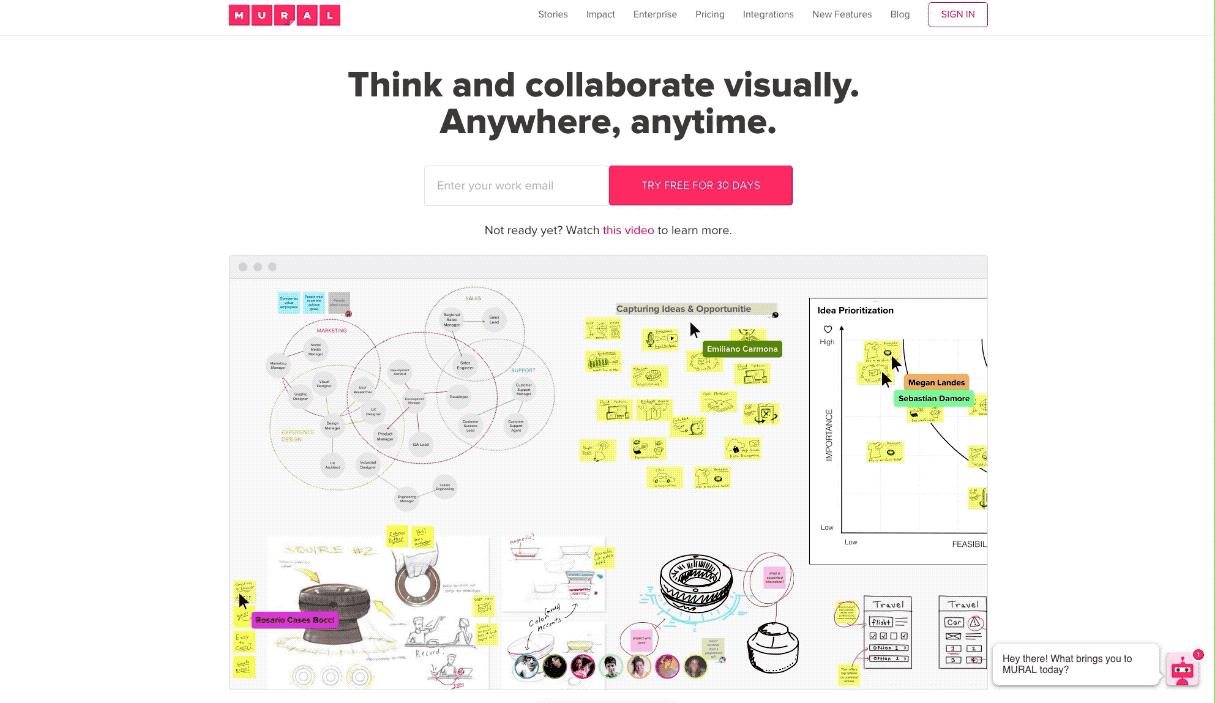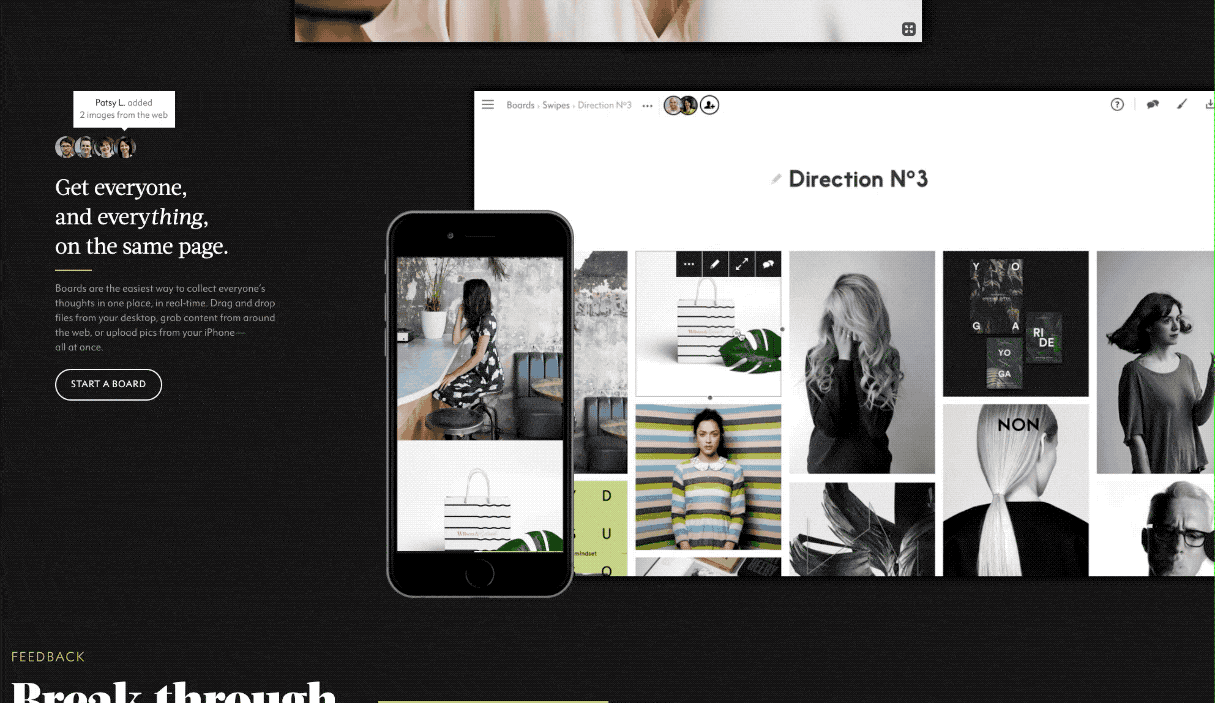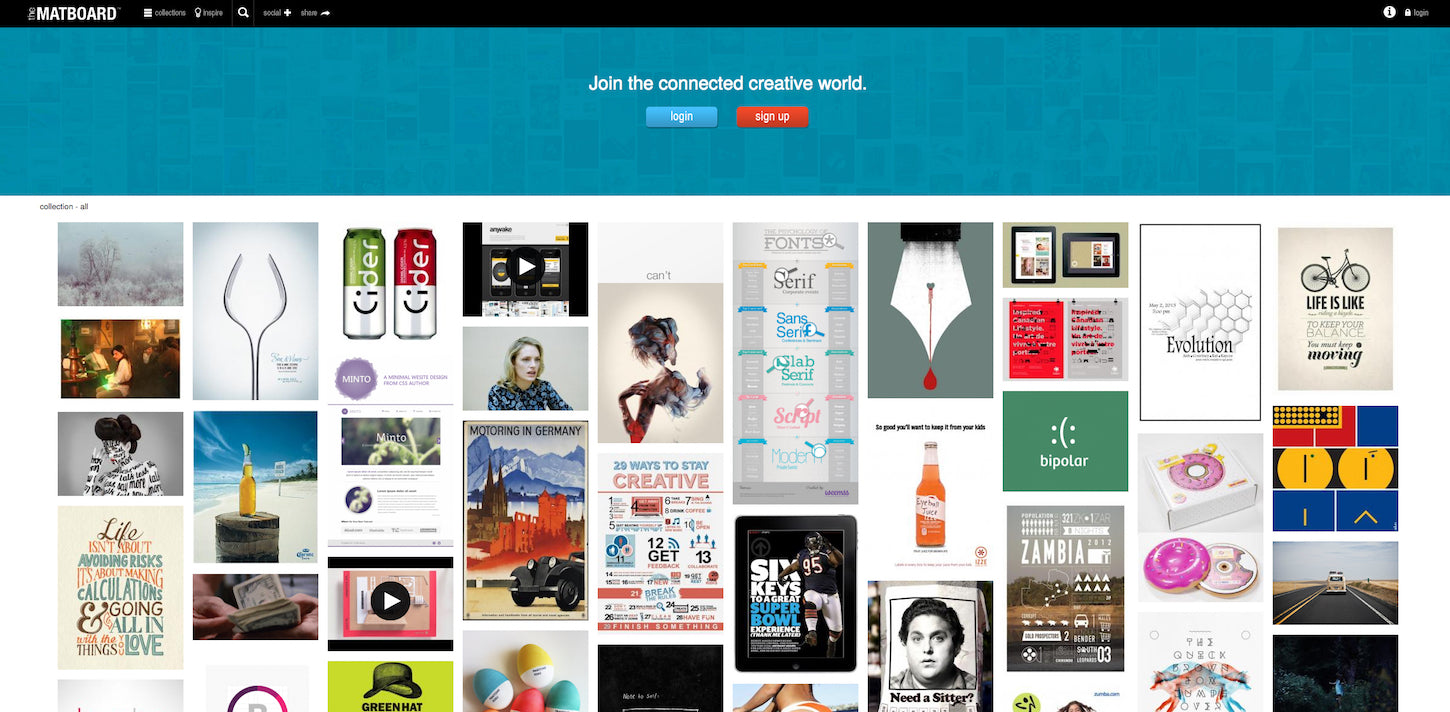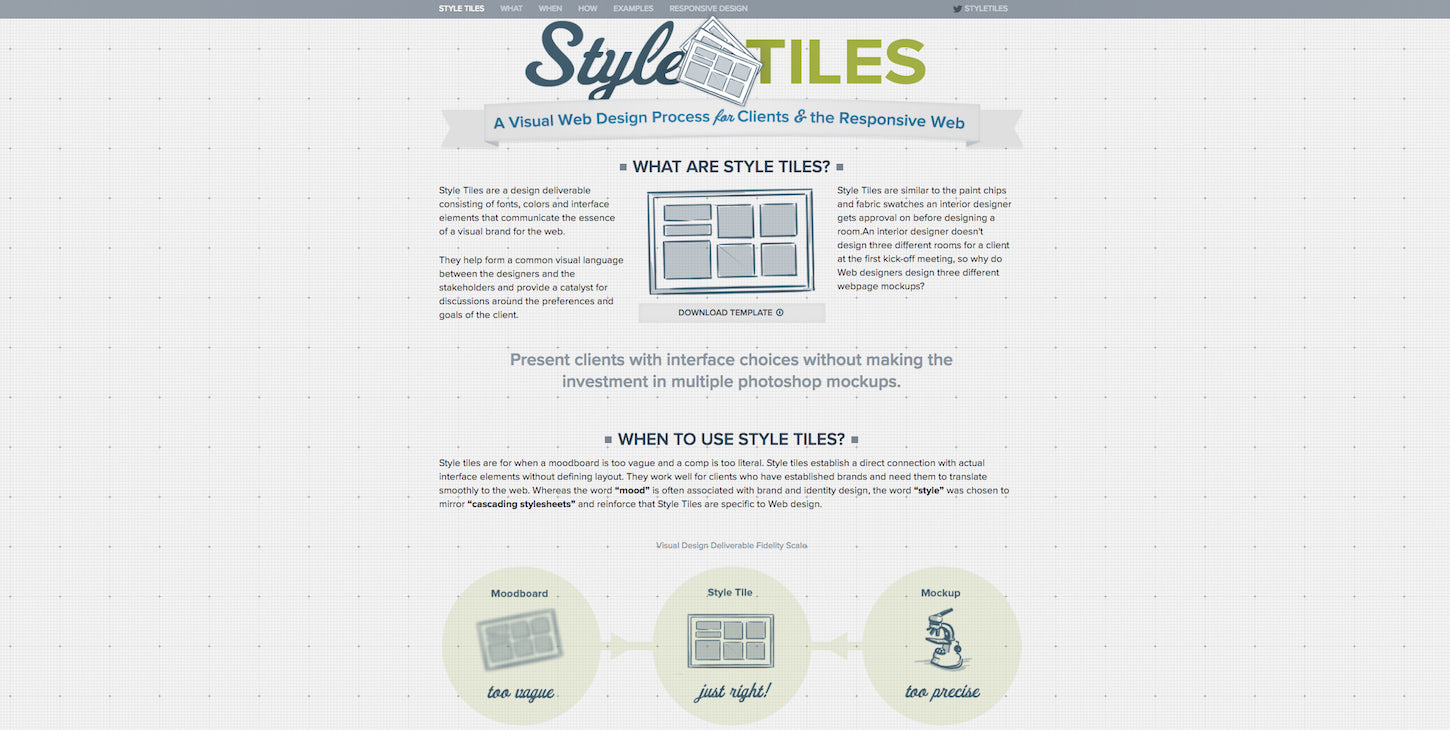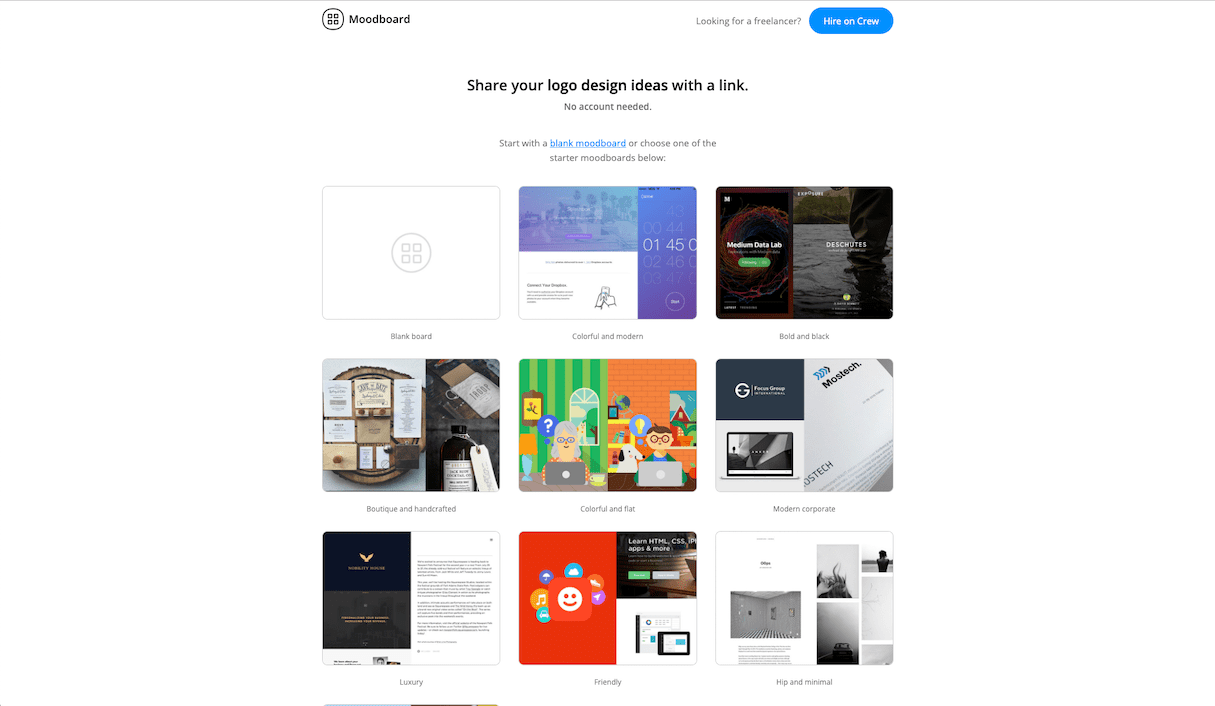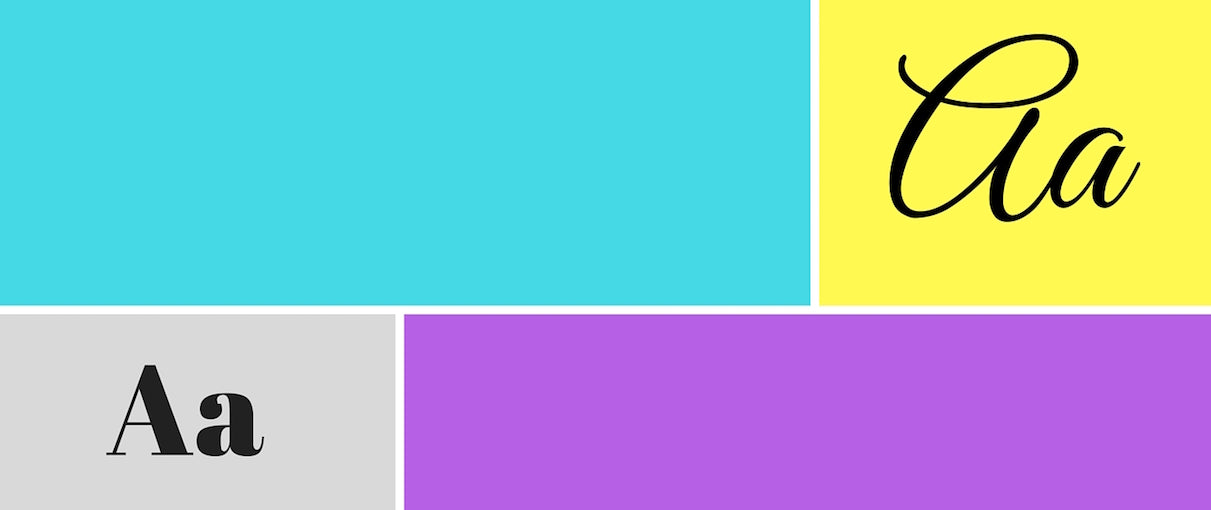
Whoever said creativity loves chaos never met a web designer’s client.
It’s common to find hints of innovative anarchy in creative professionals; it could be the way they dress, the look of their office desk, or even their manner of speaking. But one thing you shouldn’t see is a chaotic persona shine through during a client presentation.
While creativity is easiest to conjure up when running wild (literally or figuratively), it’s important to find ways to hone-in inspiration, and organize it into digestible concepts. What good is your amazing idea for a client’s redesign, if the client doesn’t understand your creative vision?
That’s where mood boards come in.
A valuable process for web designers, a mood board is a collection of visual elements that are all related to a central design theme. Designers compile varied components, like photographs, colors, typography, gradients, etc. into one board. The overarching goal is to successfully convey the tone and position of your creative concept to a client.
To help you get started on your path to clear, creative communication, we’ve compiled a short list of the best mood boarding tools you can find online.
You might also like: The Ultimate List of Online Colour Palette Generators for Web Design.
1. MURAL
Described as visual collaboration for creative people, MURAL was born out of CEO Mariano Suarez Battan’s need to collaborate remotely with an interdisciplinary team designing a video game. This online tool offers users a blank canvas, or the choice of several templates to start from. Drag and drop icons, post-its, shapes, and connectors, or select a photo from their extensive visual library (you can also upload your personal finds). Great if you generally want more collaborative online tools at your team’s disposal, as it includes access to several 'mural styles,' like empathy maps and UX workflows. (Free 30 day trial, starts at $12/month)
2. Niice
Another drag and drop interface, Niice really focuses on creating a simple, private, and noise-free creative space. You can browse sample boards, and peruse through a stream of images that let you easily find other visuals ‘like this.’ After you’ve added visuals that fit your concept, play with color effects, add text, and change sizes to take it to the next level. Niice makes it easy to add team members to your mood boards and share visuals between boards, too. Each board has its own unique URL that can be shared privately. Install on Chrome, or download for Safari, and easily drag and drop images while perusing all corners of the web. (First five boards are free, starting at $99/month)
Interested in Shopify app development? Learn more about how to build a Shopify app.
3. The Matboard
At times described as Pinterest for designers, The Matboard is a social bookmarking hub that enables users to explore, share, and inspire creative work. The digital platform has a living feed, organized by theme, where users can like, comment, or ‘re-mat’ visuals, connect with other creatives, and of course add to a mood board. Sign up via Twitter or Facebook, and add your visual finds to a Matboard. The Matboard even allows you to filter for local contributors, create profiles, and follow other users. Add the ‘Mat button’ to your toolbar, and add visuals to your account whenever inspiration strikes.
You might also like: 15 Funny Lorem Ipsum Generators to Shake Up Your Design Mockups.
4. Style Tiles
If you need a bit more of a structured environment to summon all your creative energy, Style Tiles might be your go-to tool. An online tool that specifically targets those pitching clients web design projects, Style Tiles takes mood boards to the next level. They claim to occupy the middle ground between mood boards ('too vague'), and mockups ('too precise').
Style Tiles comes with a free mood board template that allows users to establish a direct connection with actual interface elements, without defining a layout; no dimensions or devices are implied, only that the design will be digital. Great for working with clients who have established brands, Style Tiles even includes a guide detailing best use practices.
Find your new favorite Markdown editor in our roundup.
5. Moodboard
Moodboard is an ultra-lightweight tool that allows you to upload images of your choice to a blank mood board or to a template they provide. Boards are private by default, but each has a unique URL that you can use to share your vision with your team. If you need a simple, clean tool to compile images, this free-to-use application is a good bet.
6. Moodzer
For Moodzer, the goal is “to spend less time fiddling with formatting and sizing, and more time exploring fantastic ideas.” Moodzer foregoes the fancy bells and whistles and lets you get down to the business of mood boarding. It not only gives you a straightforward way to build a mood board, complete with the ability to drag and drop photos and add color units, but the tool also lets you explore and discover publicly shared mood boards put together by other creatives. Free to sign-up, Moodzer is a great tool for not only creating inspiring ideas but stumbling upon them, too.
Read more
Did we miss anything? Tell us what mood board tools you love using in the comments section below!

